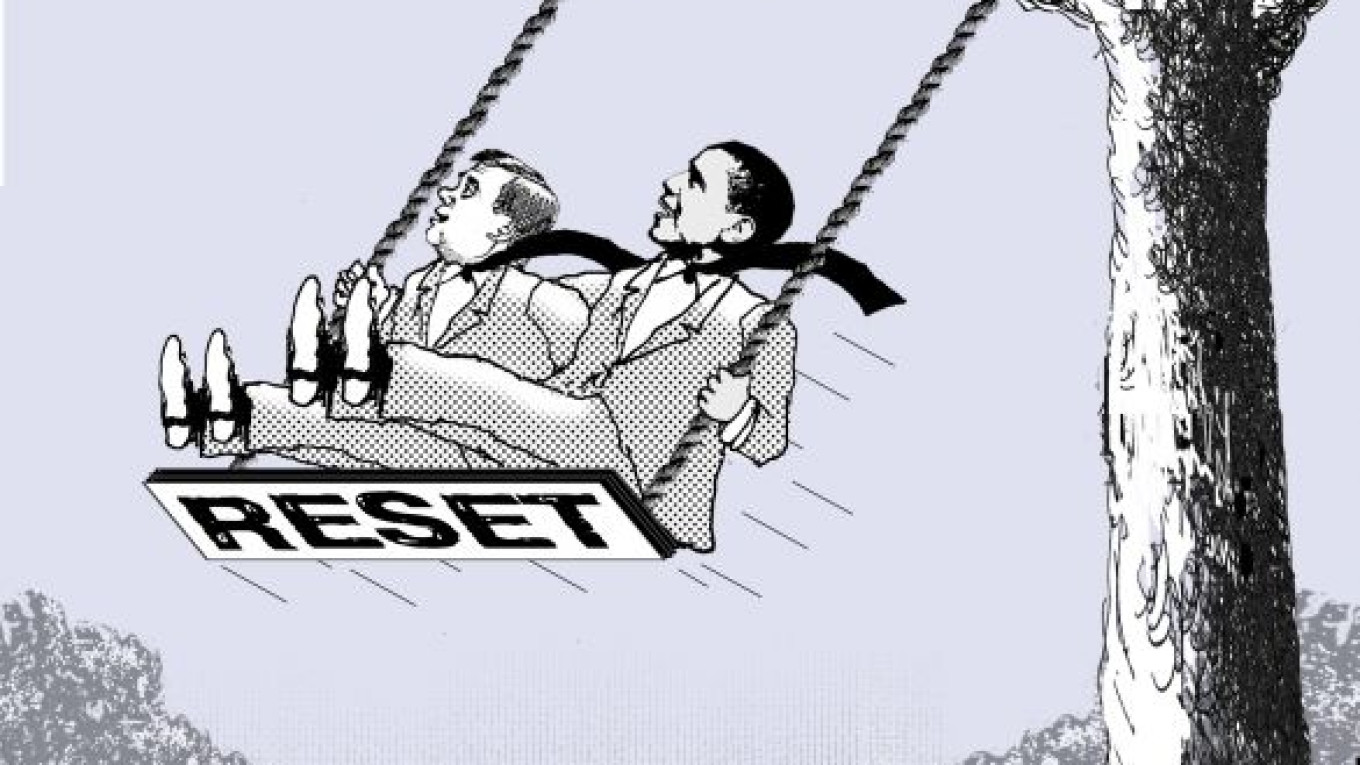Looking back at the meeting in Washington last week between Presidents Barack Obama and Dmitry Medvedev, it is rather dizzying to consider how far the U.S.-Russian relationship has progressed in just over a year.
In the summer of 2008, the Russia-Georgia conflict plunged U.S.-Russian relations to their lowest point since the Cold War. Once in office, the Obama administration initiated a “reset” of U.S.-Russian relations. While this generated understandable skepticism from some concerned about objectionable Russian behavior, it nonetheless was the right policy in our view. Every president for the past century has found it necessary and beneficial to U.S. interests to work closely with the Kremlin despite problems or tensions in U.S.-Russian relations. After some early missteps, this reset has borne fruit with progress in the security, trade and commercial spheres.? ?
Last Thursday in Washington, a group of 30 CEOs from prominent U.S. and Russian corporations met with Obama and Medvedev with a mandate to use their collective experiences to promote new paradigms for mutually beneficial trade and investment.? This corporate dialogue is the type of constructive private sector cooperation Washington and Moscow need to make sure the reset moves forward.
Strong economic ties breed strong political relationships, and expanded trade and investment will be the foundation upon which security cooperation can be sustained. With the support of both presidents, business has taken the lead in driving the two countries toward a new era of economic cooperation and mutual prosperity. ?
Thus far, the improvement in security cooperation has been significant — both substantively and symbolically. First, the United States and Russia have signed the New START agreement now being reviewed in the U.S. Senate. Second, both sides agreed to dispose of vast quantities of plutonium, enough to make 17,000 nuclear warheads. Third, they reached consensus on a new United Nations Security Council resolution to tighten sanctions on Iran for its nuclear program. Lastly, they arranged for greater transit through Russia of U.S. military cargo headed to Afghanistan.
On the economic front, the opportunities to enhance cooperation are significant, and the stage has been set for action. Moscow has decided to enter the World Trade Organization on its own, reversing its plan to do so as a customs union with Belarus and Kazakhstan. A few days ago, Obama said the United States remains committed to Russia’s accession and that he hopes to meet his counterpart next summer as a WTO member.
For its part, the U.S. Congress has held recent hearings on repealing the Jackson-Vanik amendment. The Obama administration should now provide leadership to repeal this anachronistic impediment to mutually beneficial trade and to overcome special interests in both countries that prefer the status quo.
Both countries share an interest in more efficient energy and basic materials production in Russia, as well as enhanced energy conservation in Russian industry, offices and homes. Both share an interest in improved health care in Russia, where life expectancy is still below what it was 20 years ago, despite recent progress and substantial increases in health care spending. Such progress can be achieved through enhanced U.S. investment in and export of innovative products to Russia, but this needs to be promoted by Russian actions to enhance the security of investments and intellectual property.
Medvedev’s focus on innovation and modernizing the economy is a welcome development and one that has already contributed to real progress in improving the investment climate. During the St. Petersburg International Economic Forum several weeks ago, Medvedev announced that he would cut capital gains taxes, strengthen the rule of law, privatize state enterprises and cut the red tape that causes delays in processing visas.
More robust bilateral economic ties will benefit U.S. workers and consumers with increased access to Russia’s vibrant economy and abundant resources, while Russia will benefit from U.S. innovation and investment to help diversify its economy. A more diversified Russian economy will be a more stable trading partner to the benefit of U.S. exporters.
While mindful of the serious differences that remain between the United States and Russia, we are more optimistic than ever that the positive momentum developed over the last year can continue to produce beneficial, concrete results in both the economic and security spheres that will endure for years.?
Klaus Kleinfeld is chairman and CEO of Alcoa and chairman of the U.S.-Russia Business Council. William Cohen, a former defense secretary and U.S. senator, is chairman and CEO of The Cohen Group, a global business consulting services firm based in Washington.
A Message from The Moscow Times:
Dear readers,
We are facing unprecedented challenges. Russia's Prosecutor General's Office has designated The Moscow Times as an "undesirable" organization, criminalizing our work and putting our staff at risk of prosecution. This follows our earlier unjust labeling as a "foreign agent."
These actions are direct attempts to silence independent journalism in Russia. The authorities claim our work "discredits the decisions of the Russian leadership." We see things differently: we strive to provide accurate, unbiased reporting on Russia.
We, the journalists of The Moscow Times, refuse to be silenced. But to continue our work, we need your help.
Your support, no matter how small, makes a world of difference. If you can, please support us monthly starting from just $2. It's quick to set up, and every contribution makes a significant impact.
By supporting The Moscow Times, you're defending open, independent journalism in the face of repression. Thank you for standing with us.
Remind me later.


